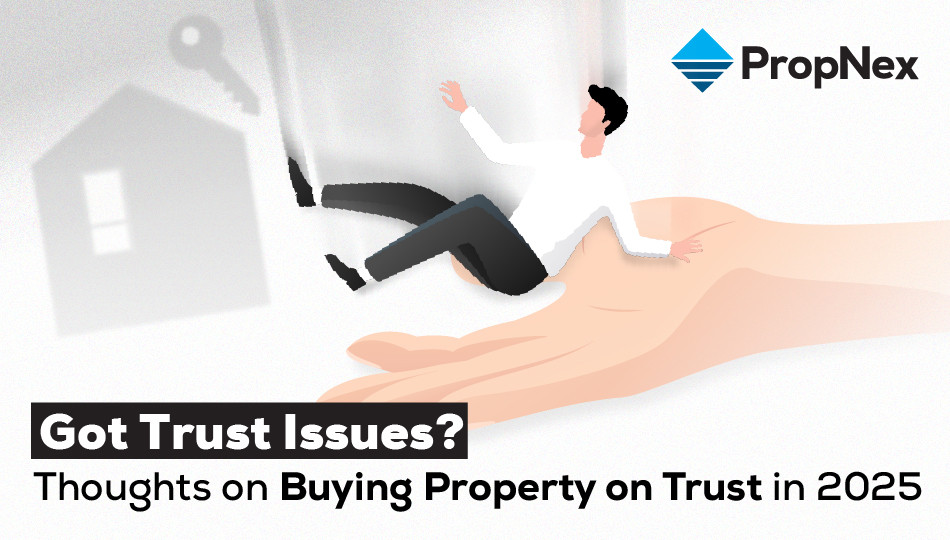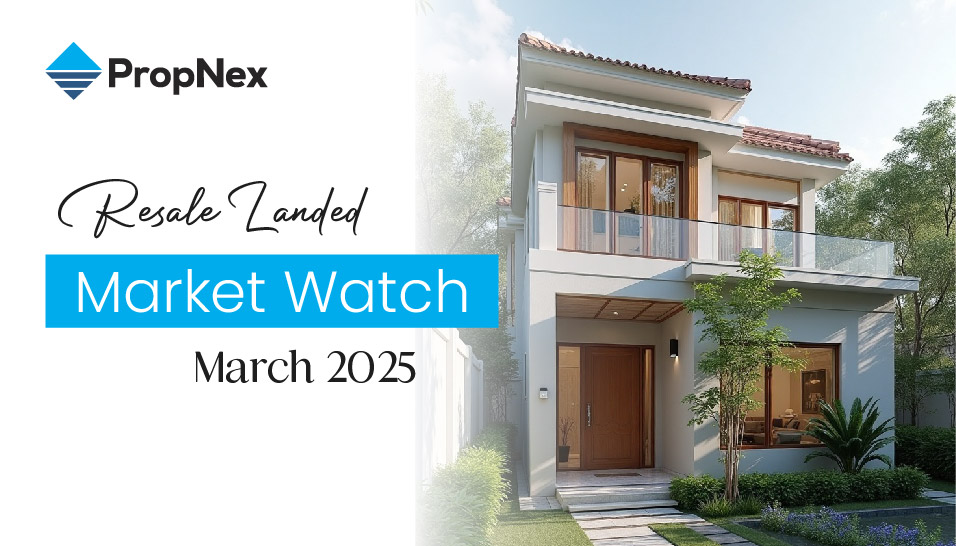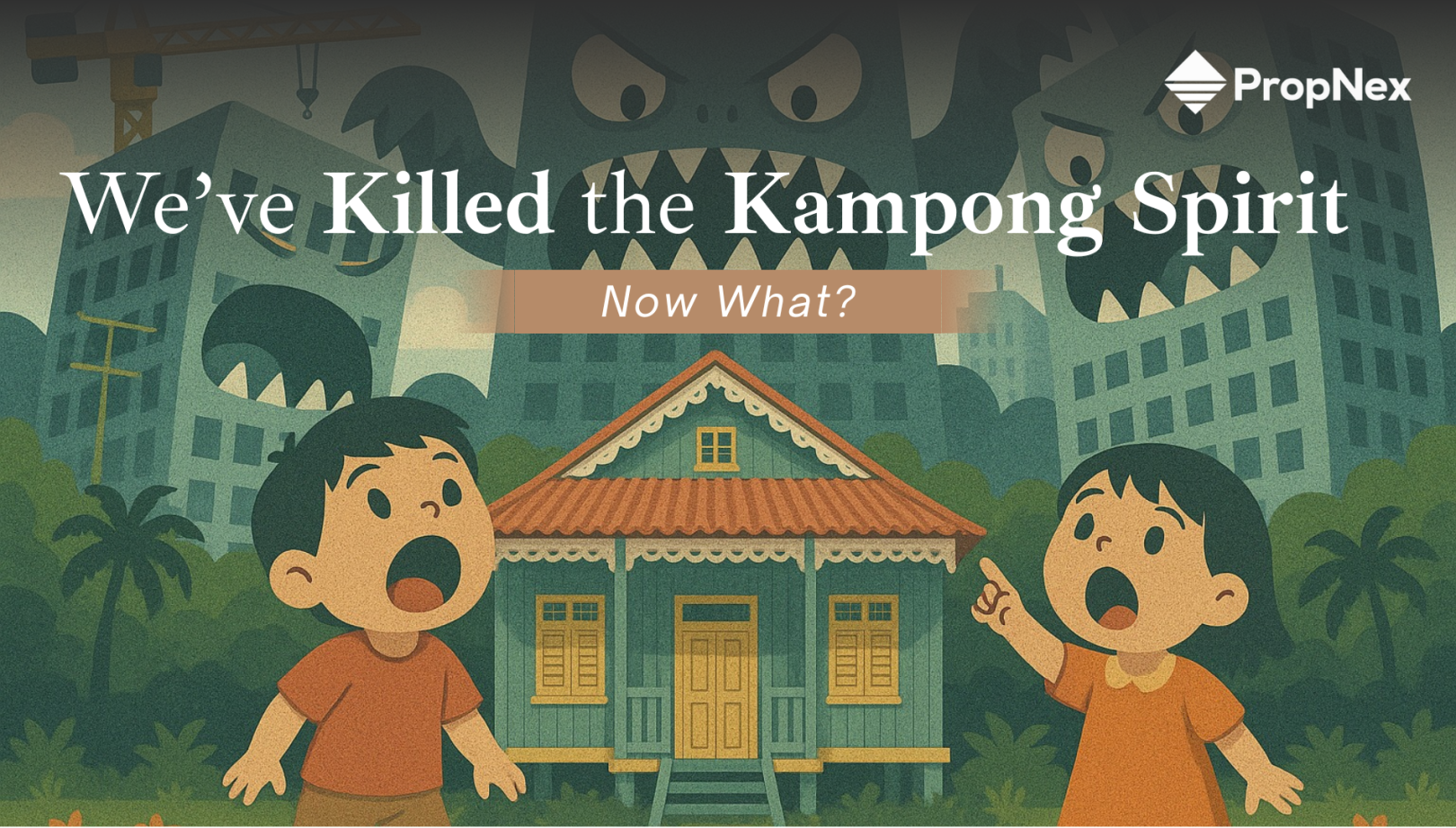PropNex Picks
|May 02,2025Got Trust Issues? Thoughts on Buying Property on Trust in 2025
Share this article:

Trust is a hot topic among parents and property investors. But what used to be a niche wealth planning tool is not the loophole people think it is anymore. If you don't know what you're doing, you could end up wasting your money. So let's take a deep dive and find out if buying a property via trust is a move you should take in 2025.
A trust is a legal arrangement set up by a settlor where a trustee holds and manages an asset for the beneficiary, and it's not uncommon for the settlor to also be the trustee. When it comes to property, this means the legal title is held by the trustee, but the property is ultimately meant for the beneficiary, usually a child or someone unable to manage the asset themselves (yet).
There are two common types of trusts used in property purchases:
Revocable trust: Can be changed or cancelled by the settlor.
Irrevocable trust: Cannot be altered once set up, offering more asset protection.
Properties held in trust can be rented out, but- the rental income generated is treated as the statutory income of the Trustee and taxed at a flat rate of 17%, unless the beneficiary is a Singapore tax resident, in which case the income is taxed at the beneficiary's personal tax rate.
Properties held in trust can also be sold, depending on the conditions outlined in the trust deed. If the trust deed grants the trustee the authority to sell the property, they may proceed with the sale. However, if the deed does not provide such authority, the trustee may need to obtain consent from the beneficiary or seek a court order to authorise the sale. The profits from the sale are generally not subject to tax because they are treated as capital gains.
Regardless, once any income from the trust property (from rent or sale) is distributed to the beneficiary, they must report their share as trust income in their personal tax return.
Future-Proofing for the Kids
This is perhaps the most common reason to buy a property under trust. As parents, it's natural to worry about your kids and their future, who wouldn't? You just have this instinct to provide a roof over their heads. But when the housing market keeps getting hotter and more competitive, you just can't help but wonder if they'd be able to afford a home in the future. So, some parents choose to buy a property under a trust with their child as the beneficiary to secure their future home or give them a financial head start.
Protection from creditors
Since the property no longer belongs to the settlor, it is generally shielded from bankruptcy claims made against them.
That said, this protection only applies if the trust was established at least five years before the start of bankruptcy proceedings. If the trust was created within five years leading up to the bankruptcy, the Official Assignee has the power to reverse the trust. In such cases, all legal and tax consequences will apply as though the trust never existed.
Similarly, properties held in trust are usually excluded from matrimonial assets and are not divided during divorce settlements.
Avoiding Additional Buyer's Stamp Duty (ABSD) (This no longer works!)
Back then, buying property via trust was way easier, fewer rules and less red tape. It became a loophole for people who want to own more homes without having to pay ABSD. Naturally, the government caught on and introduced measures to keep the market fair.
From 9 May 2022, any residential property transferred into a living trust is subject to ABSD, and on 27 April 2023, the rate was increased to 65%. So, paying ABSD on a second or third property is actually more affordable than paying the 65% ABSD required for buying a property under a trust.
I mean, sure, you can get your ABSD refunded, but only after the beneficiary takes over the property. Until then, the ABSD, which could amount to hundreds of thousands or even over a million dollars, sits idly and slowly loses to inflation each year. It's as impractical as putting it in a piggy bank.
Plus, getting an ABSD remission doesn't guarantee that all of the 65% you paid will be refunded. The refund amount depends on the difference between the ABSD you paid and the ABSD that would've been due based on the highest profile of the property's beneficiary.
You also need to fulfill these requirements to qualify for the remission.
The trust must be for a specific individual beneficiary, identified in the declaration of trust, who has beneficial ownership of the property. The ownership must not be revocable, variable, or contingent. It excludes individuals who are yet to be born, entitled only to income, or have contingent or discretionary interests.
The 65% ABSD must have been fully paid on the property.
The application for ABSD remission must be submitted within 6 months of the trust's execution.
Buying property under a trust is simply not for everyone because you have to pay mostly in cash. Let's say you're eyeing a $2 million condo. The BSD is $69.6k and ABSD itself is $1.3 million. That's almost $3.4 million in total. Upfront. In cash. You also need to consider legal fees, trustee fees if you're appointing a professional to manage the trust, as well as the continuous property tax (4% for own stay and 10% for rental) and maintenance fees.
This is why the trust route is usually reserved for ultra-wealthy individuals who have millions of dollars just laying around. If that's not you (no shame at all!), then it might be wise to consider alternative options.
If your goal is to prepare a home for your child and you don't have the $3 million to set up a trust like the rest of us, perhaps consider gifting instead. If you already own one or more properties and you're buying another one for your child, then you'd still have to pay ABSD. But, it will be 35% at most (unless you're a foreigner) rather than 65%, which is considerably a lot better. Plus, you don't have to pay everything fully in cash. Financing such a big purchase becomes more manageable when you can take out a loan and use your CPF. You'll have the option to refinance later too.
Another option you can explore is to buy a property under joint tenancy with your child. This means you'll co-own the home and you can decide how much share each person owns.
Eitherway, you'd have to wait until your child is at least 21 years old to legally own property. By then, prices will be even higher than they are today. Plus, ABSD still applies based on your existing property count and your share of the purchase, so it's not exactly a free pass either.
Regardless, if the goal is long-term planning, removing your name means you won't be eligible for an ABSD refund, unlike with a trust. Because a major requirement for an ABSD refund is to sell or dispose of your first residential property within 6 months of the date of purchase of the second property (for completed property), or the date of issue of the Temporary Occupation Permit / Certificate of Statutory Completion whichever is earlier (for incomplete property). Plus, when you transfer ownership to your child later, you'll trigger stamp duties again.
Let's say you bought a $2 million property and you are gifting it to your child. Your child receiving this property will then be required to pay BSD of $69,600. If your child is a Singapore citizen, and this is their first property, then they won't have to pay ABSD. Otherwise, ABSD still applies.
If you co-own the property with your child (let's say it's 50-50) and later decide to transfer your share to them, they'll have to pay BSD (and ABSD, if it applies) on their 50% share too.
So, even these alternative options have their ups and downs. ??That's why it's important to weigh all your options carefully.
Setting up a trust can be a powerful tool, but it's not for everybody. The financial commitment is massive, and the legal requirements are strict, so you must have a solid reason to buy a property on trust. Whether you're doing it to protect your assets or prepare for your child's future, you need to properly consider if this is the right path for you.
So if you want to learn how to secure your future, and your childrens, do join us at our upcoming Property Wealth System (PWS) Masterclass. We have industry experts breaking down real strategies to build wealth through property, to set you on the right track. And make sure to bring the kids along too! It's never too early to start learning.
Views expressed in this article belong to the writer(s) and do not reflect PropNex's position. No part of this content may be reproduced, distributed, transmitted, displayed, published, or broadcast in any form or by any means without the prior written consent of PropNex.
For permission to use, reproduce, or distribute any content, please contact the Corporate Communications department. PropNex reserves the right to modify or update this disclaimer at any time without prior notice.









